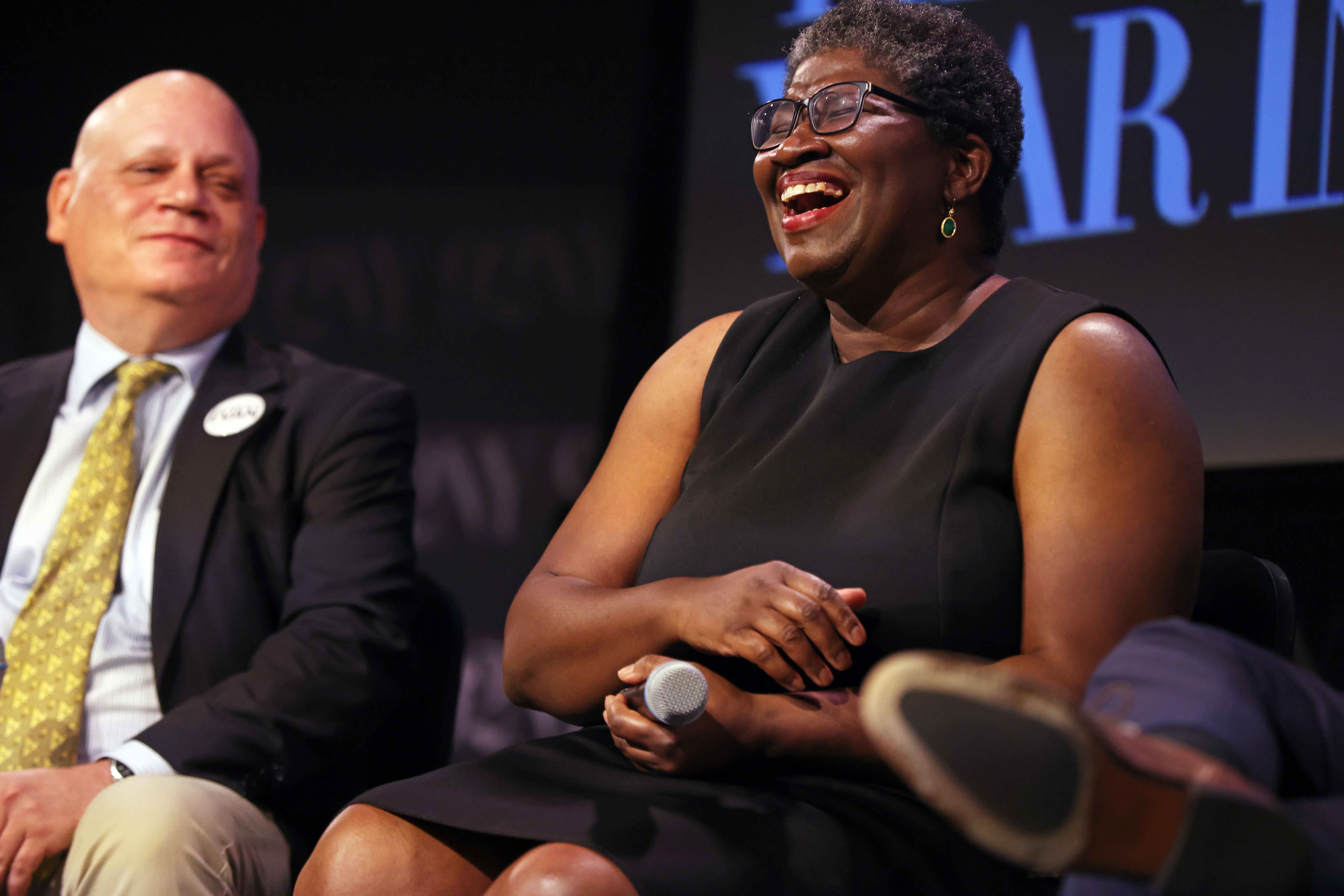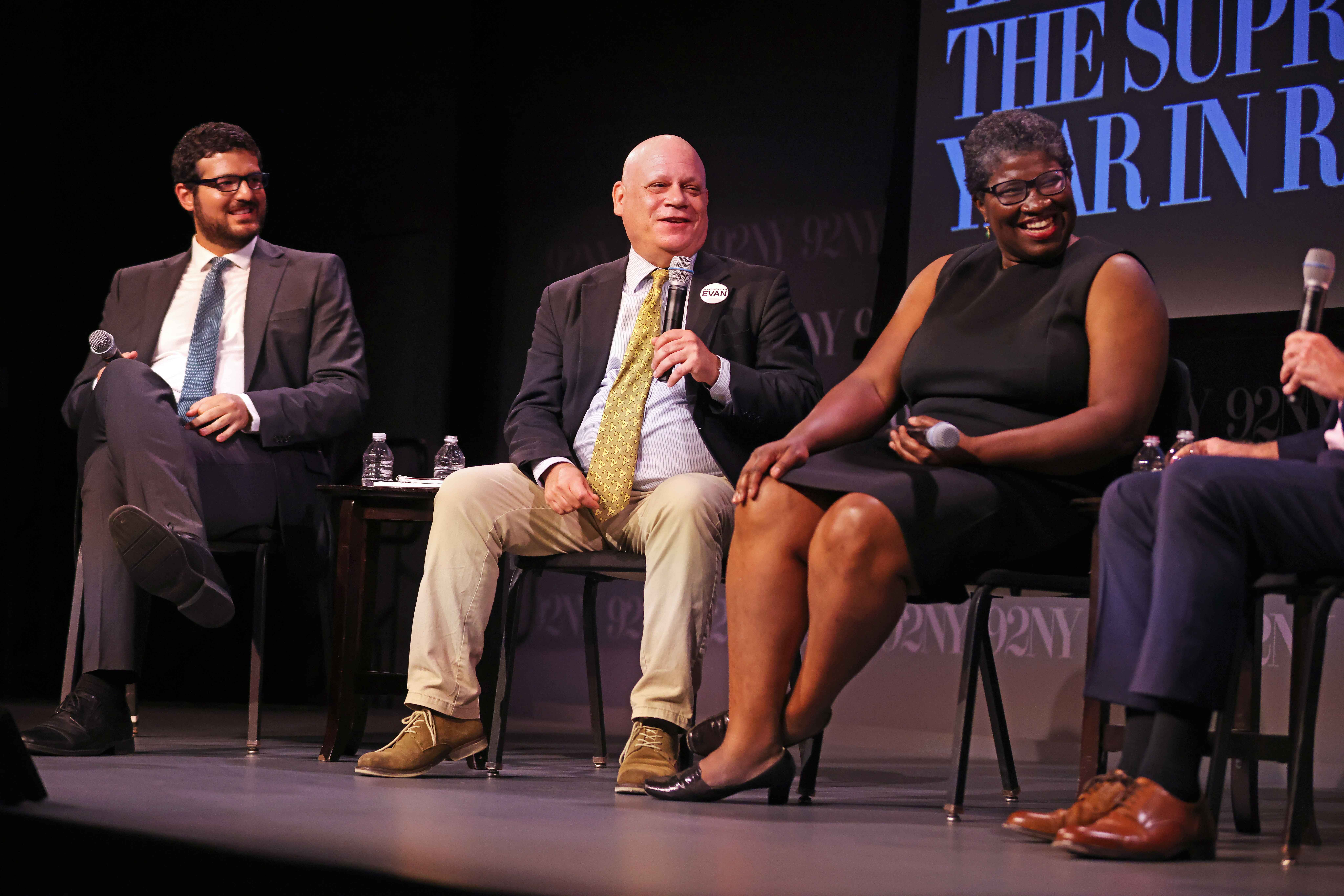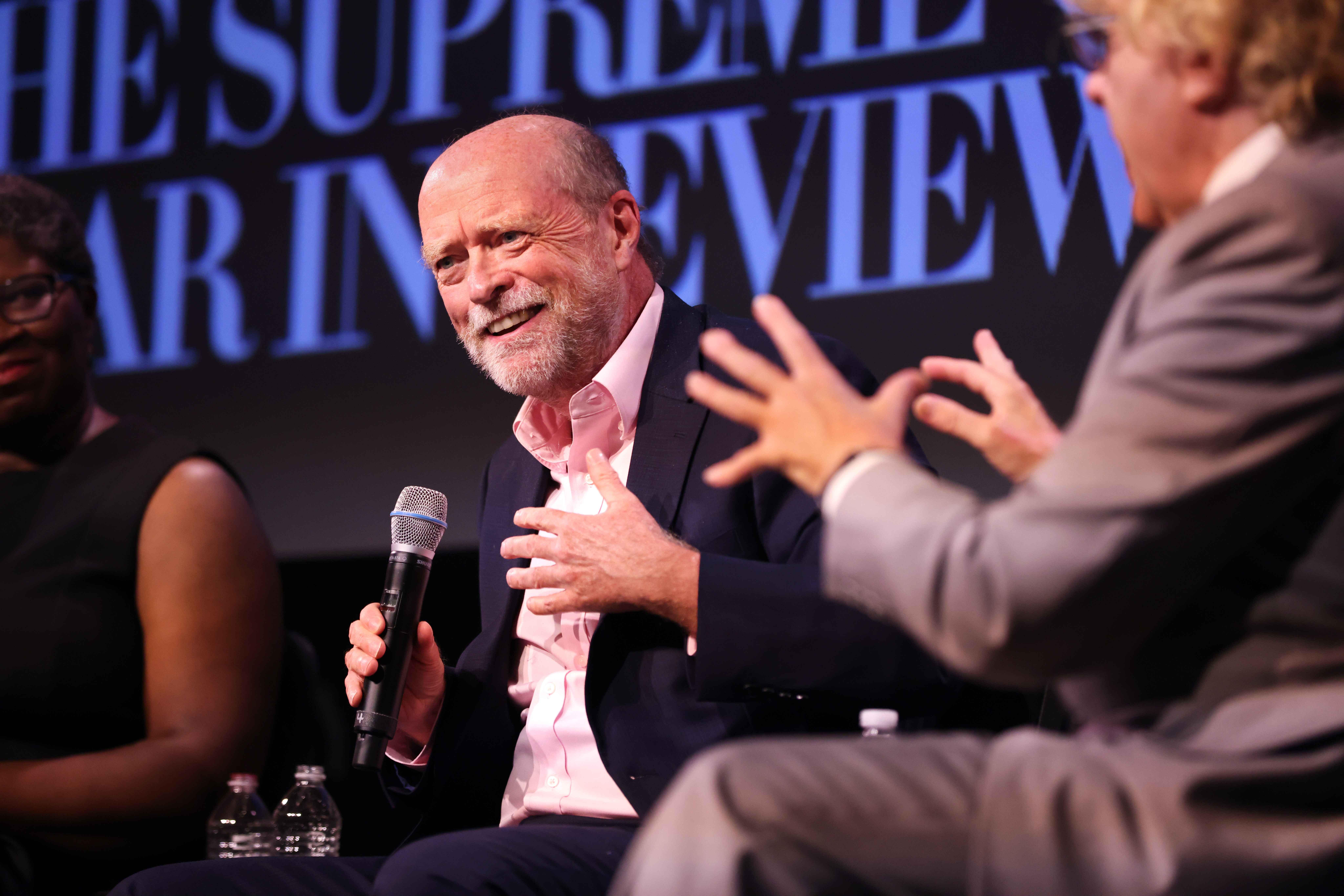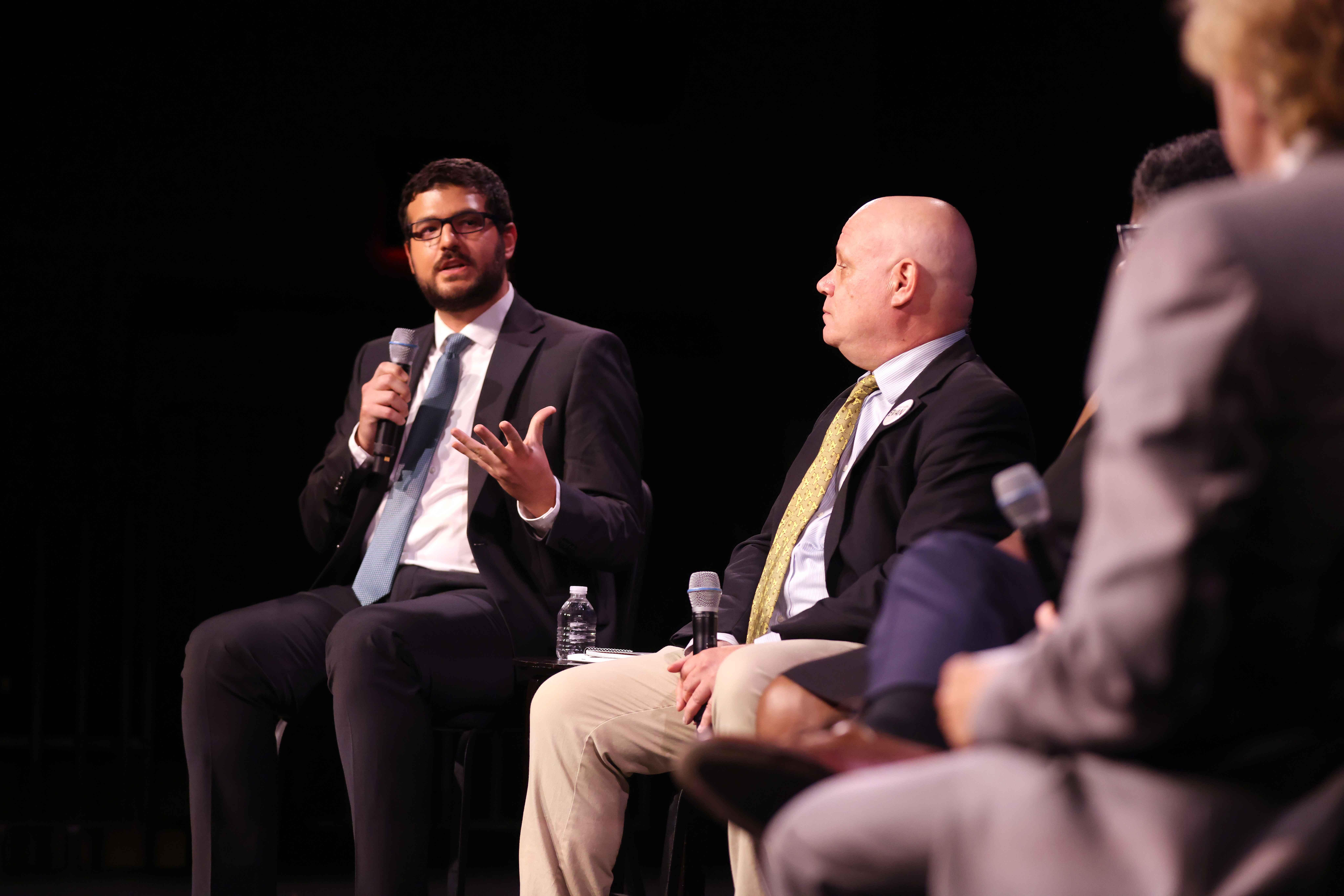Law of the Land 2024: The Supreme Court's Year in Review
The inner workings of the Supreme Court are mysterious and not easily understood, yet have broad social impacts and provoke widespread public debate. This year, we take a look at presidential criminal immunity, presidential ballot eligibility, free speech and social media, abortion, deferences to government agencies, and more. Law of the Land breaks it all down in a comprehensive and entertaining way, taking the audience inside the Court’s major rulings of the year and their bearing on past and future cases.
On, July 8, law professor, legal analyst, and FOLCS Creative Director, Thane Rosenbaum, hosted a diverse panel of experts – Constitutional Law Professor at Touro Law Center, Tiffany Graham; Senior Writer covering courts and the law for Slate Magazine, Mark Joseph Stern; Supreme Court Correspondent for The Wall Street Journal, Jess Bravin; and Georgetown Law School Dean, William Treanor.
This program was co-produced with 92NY.
To view other past events click HERE





/
Jess Bravin
Supreme Court Correspondent, Wall Street Journal
Jess Bravin covers the U.S. Supreme Court for The Wall Street Journal, following earlier postings as United Nations correspondent and editor of the WSJ/California weekly.
His books include The Terror Courts, an account of military trials at Guantanamo Bay, and Squeaky: The Life and Times of Lynette Alice Fromme, along with contributions to Violence in America: An Encyclopedia, Crimes of War 2.0 and A Concise Introduction to Logic (2nd ed.). A regent emeritus of the University of California, Mr. Bravin has delivered the John Field Simms Sr. Memorial Lecture in Law at the University of New Mexico, served on the Berkeley, Calif., Police Review Commission, and taught at the UC Washington Center. He is a graduate of Harvard College and holds a law degree from UC Berkeley.
Tiffany Graham
Associate Professor & Dean, Author
Tiffany C. Graham is an Associate Professor of Law and the Associate Dean of Diversity and Inclusion at Touro University, Jacob D. Fuchsberg Law Center in Central Islip (Long Island), New York. She primarily teaches in the areas of constitutional law and race and the law, but has also taught criminal procedure, law and sexuality, and torts. She has written and spoken nationally on topics broadly related to individual rights, including marriage equality, LGBTQ+ youth homelessness, conversion therapy, the integration of LGBTQ+ communities in rural spaces, abortion rights, and anti-CRT statutes, and her work has appeared in multiple law journals. Recently named a Top Lawyer of Long Island for Excellence as an Academic Lawyer by the Long Island Herald, she was previously named as a Fulbright Scholar in 2014.
Mark Joseph Stern
Senior Writer, Slate Magazine
Mark Joseph Stern is a senior writer covering
William Treanor
Dean & Executive Vice President, Georgetown Law Center
William M. Treanor is the Dean and Executive Vice President of Georgetown University Law Center, and he holds the Law Center’s Paul Regis Dean Leadership Chair. Treanor joined Georgetown in 2010 and was reappointed to serve a third term as Dean and Executive Vice President beginning July 1, 2020.
Under Treanor’s leadership, Georgetown Law has hired 69 new faculty members; tripled the number of experiential offerings for students in its clinical, externship, and practicum programs; and experienced its most successful era of fundraising, culminating in over $80 million in giving in the last fiscal year.
In 2012, Treanor was recognized by the National Law Journal as a “Champion” because of his work to “uphold the profession’s core values.” In the same year, he received the 2012 David Stoner Uncommon Counselor Award from the David Nee Foundation for his efforts to raise mental health awareness among law students. The National Jurist magazine has named him one of the most influential people in legal education five times. In 2020 he was elected into the American Academy of Arts & Sciences for law and education. Most recently, he was selected for the inaugural Honorable Robert A. Katzmann Award for Academic Excellence by the Burton
Awards.
Treanor’s areas of academic expertise include constitutional law, property law, criminal law, intellectual property, and legal history. At Georgetown Law, he has taught a first-year legal justice seminar, an upper-level course on the drafting of the U.S. Constitution, and, most recently, leadership courses. His writings have principally been in the area of constitutional history, and he has been recognized as one of the 10 most-cited legal history scholars in the United States by the University of Chicago Law School’s Brian Leiter. Treanor’s latest article, “The Case of the Dishonest Scrivener: Gouverneur Morris and the Creation of the Federalist Constitution,” a study of the changes that constitutional convention delegate Gouverneur Morris and the Committee of Style made in preparing the Constitution’s final draft, was published in the October 2021 issue of the Michigan Law Review. W.W. Norton will publish his upcoming book, Fathers of the Constitution: Triumph, Tragedy, and the Creation of the American Republic.
Before coming to Georgetown, Treanor was Dean and Paul Fuller Professor of Law at Fordham Law School, where he began teaching in 1991. He also has served in a variety of positions in the government, including Deputy Assistant Attorney General in the Office of Legal Counsel, U.S. Department of Justice; Associate Counsel, Office of Independent Counsel during the Iran/Contra investigation; Special Assistant U.S. Attorney in the District of Columbia United States Attorney’s Office; and Special Assistant to the Chair of the New York State Commission on Government Integrity. He was law clerk to the Honorable James L. Oakes, U.S. Court of Appeals for the Second Circuit. Treanor has a Ph.D. in history from Harvard University, a J.D. from Yale Law School, and a B.A. from Yale College (summa cum laude).